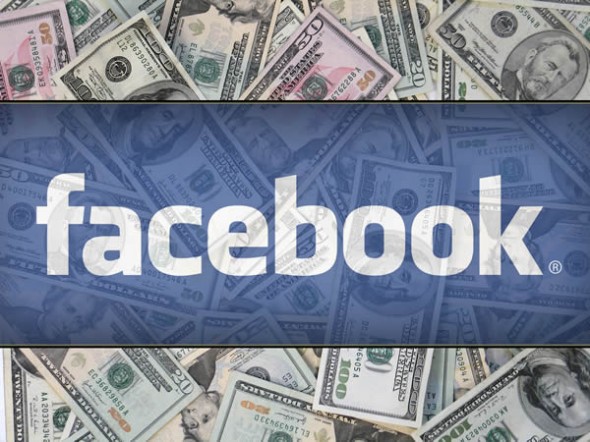
There has been talk of little else but the Facebook floatation by the technology press since the social networking giant went public last Friday for $38 per share, valuing the company at $100 billion. That share price then rose sharply up to $42 per share before its slow decline to its current $31. So where has all the investor excitement gone about the most important internet-company floatation to date? How has the bubble burst so quickly?
The first thing to note is the gross over-valuation that Facebook has received. The company turned a very useful $1 billion profit last year, but somehow they have been valued at a hundreds times that. If Facebook already has about 12% of the world’s population using the service (and that includes a very large proportion of the wealthier parts of the world), how exactly is Facebook going to grow to the extent to warrant such a valuation? Yes the site could be better monetised, and Facebook needs to find a way to monetise its very rapidly growing mobile audience, but growing it by a factor of ten would be a real stretch.
Some are asking for Facebook to start to offer larger more glossy ads to regain some big brand advertisers after General Motors yanked their $10 million ad deal after finding their ads to be performing badly – but I can’t imagine anyone was surprised by that. The value of Facebook’s ads is by targeting people so precisely in order to gain direct sales. The advertiser will know the person’s interests and likes/dislikes and so can target an ad to them personally. Problematically big brand advertisers such as car manufacturers are after branding rather than sales advertising – and Facebook just isn’t good for that and it is not about to start either.
No-one wants to have “this wall post is brought to you by McDonalds” or “make a message voyage with Chrysler” and Facebook knows this. For adverts to succeed online they shouldn’t be a punishment, but more added value or interest. Google got this right with AdWords/AdSense (and how they are implementing that with Google+), and Facebook has its ads right at the moment with that personal marketplace feel. People appreciate that content like video is expensive to produce and as such will put up with longer form pre-roll ads, but that value judgement is simply not there with Facebook’s services – as contacting and interacting with friends should be free in everyone’s mind. Email, IM, Twitter, and Skype are all free without intrusive ads.
How was it that Facebook became so over-valued then? Mostly due to hype with everyone wanting their slice of such a famous internet stock. The birth of most companies don’t get critically acclaimed dramas made about them, or will ever reach the lofty heights of such a huge userbase – and that continues to make Facebook an exciting business. They have changed the way people interact with each other, and have huge dominance in the social space for personal interactions. There is no doubt about Facebook’s influence on modern society, with even its layout changes getting reams of press. But this excitement is not related to Facebook’s future growth and profitability – it is all about Facebook’s past. The excitement is about what they have done, not what they can achieve in the future and as such, valuing the company at a hundred times its annual profits was never going to last.
It is not Facebook that is at fault here, it is the financial markets. Facebook and Zuckerberg especially understands the value of its business is in its userbase and keeping them happy and their interactions on the site – not expanding the sites monetisation strategies and pushing people away. Such heavy handed monetisation is one of the reasons that MySpace fell so heavily from grace as Facebook offered the cleaner and leaner alternative. The financial markets know little about how internet companies work, and Facebook should keep to its strengths and ideals in moving the company forward not listen to traders and investors who look for short-term profit and not long-term viability and success.

